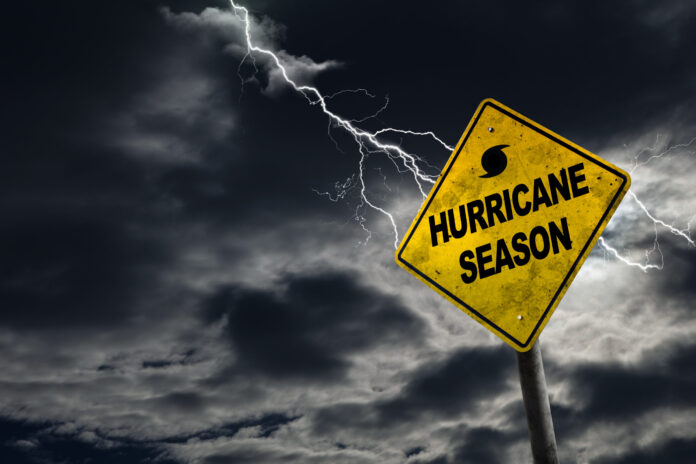As a small business owner, hurricane season can be an incredibly stressful and concerning time of year. Unexpected storms pose risks to not only your safety but also the well-being of your business; however, preparing for any danger ahead of time is critical.
In this blog post, we’ll discuss how you can adequately prepare yourself as a small business owner for the upcoming hurricane season.
From routinely checking up on disaster plans and supplies to ensuring that communications are secure, there’s plenty you can do right now to ensure your business securely weathers any stormy conditions while keeping assets and employees safe.
What’s The Risk Of Hurricanes For Small Businesses?
Hurricanes can devastate small businesses, especially those near the coastlines. The risk is extreme since many of these businesses lack the insurance coverage and strength to withstand a major hurricane.
With little or no protection from floods and winds, these businesses may suffer severe damage that can cost them significant money to repair or rebuild. Not only that, but they must also consider losses in business due to a lack of operations while repairs are being done.
Small business owners need to understand the risks associated with hurricanes and how to prepare for them as best they can so they stand a better chance of emerging unscathed after a storm hits.
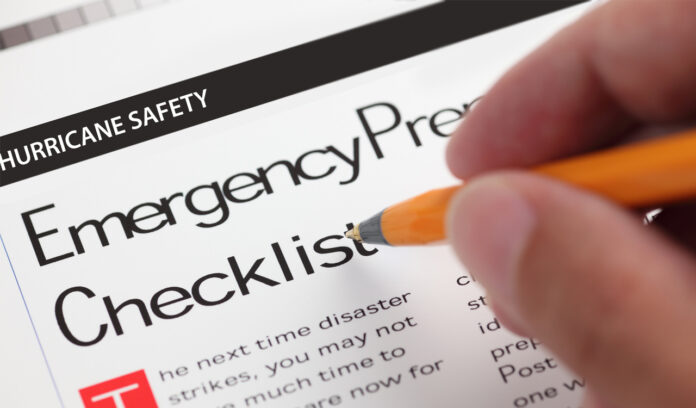
Why Is Hurricane Preparedness Key For Small Businesses Against Hurricanes?
Hurricane preparedness is essential to help protect a business during a hurricane. Not only can it help a company better prepare for a storm, but it can also reduce the potential damages associated with it.
Hurricane preparedness can include adequately securing the premises, reinforcing windows and doors, establishing protocols for assessing property damage after a storm, backup power supply plans, and more. Hurricane preparedness also ensures that a small business has appropriate insurance coverage to help minimize financial losses and enables them to have access to emergency funds if needed.
By securing their property against natural disasters like hurricanes, small businesses can prevent secondary losses like violations and lawsuits related to the failure of the structure or premises, which could result in additional legal expenses and loss of income.
Things To Have To Be Always Prepared For Hurricanes
Coastal small businesses need to be vigilant and proactive regarding hurricane preparation. By understanding the five hurricane classifications, assessing their risk levels, and creating a response plan, owners can ensure they are as prepared as possible for any storm that may come their way. To get started with your strategy, here are six things all businesses should have first:
1. Flood Insurance
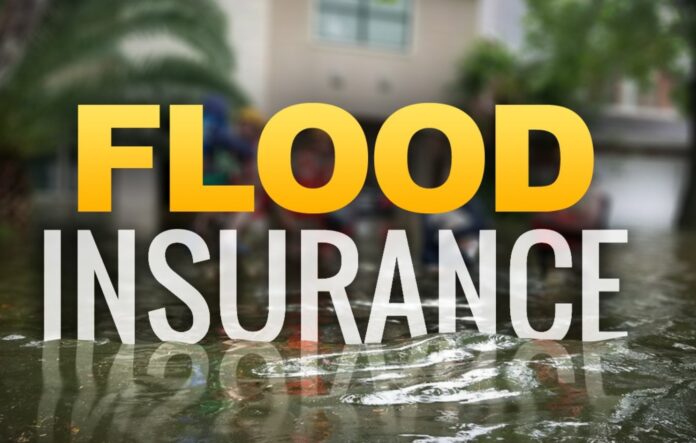
Owning flood insurance is an innovative and necessary way for homeowners to protect their property and investments against the devastating effects of hurricane season. Floods have the potential to cause immense damage, but they are also one of the most common outcomes of hurricanes.
Flood insurance will help cover the costs of damages, pay for repairs, and even provide support when rebuilding after extreme flooding events. Furthermore, too often, homeowners assume they are already covered through their regular homeowner’s policy when they need an individual coverage plan just for flooding.
2. Evacuation Plan
It can be challenging to prepare for a hurricane, but having an evacuation plan is one of the best ways to protect your family and lessen the damage these extreme weather events can cause.
Hurricane winds can easily cause property damage and even endanger lives, so it’s essential to be prepared with an evacuation plan that includes options for shelters you may need to access or routes that will keep you safe if necessary.
3. Property Protection

Hurricanes can cause immeasurable property damage, and the physical, emotional, and financial tolls can be heavy for anyone impacted.
A property protection plan is an intelligent way to reduce some of that risk in extreme weather conditions. When added to your policy, certain types of coverage protect against wind and hail damage and cover issues from flooding.
4. Secure Documents
It is a fact that hurricanes cause tremendous financial and emotional damage. While there are many ways to reduce the loss from hurricane damage, one that is often overlooked is securing documents.
By securely storing hard copy documents or digitizing them into an online storage system, individuals and companies can ensure their essential records will not be lost in the face of high winds and flooding.
5. Photos of Inventory
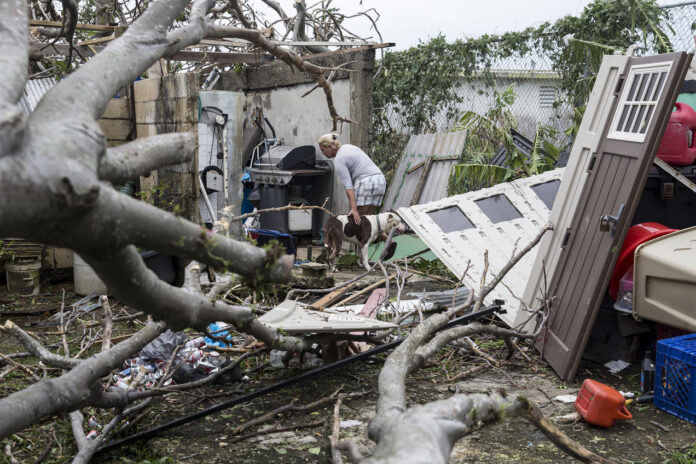
Hurricanes can cause immense destruction, leaving all kinds of damage in their wake. One way to reduce the damage caused by these storms is to take photos of inventory in warehouses and hospitality businesses, like goods or supplies.
This allows companies to have evidence of what they owned before a storm and track losses if items were damaged or destroyed in a hurricane.
6. Survival-Relief Kit
A survival-relief kit on hand ahead of any impending hurricane can be beneficial in an emergency. The supplies will help sustain you and your family if power is lost and will be instrumental after the storm has passed.
Even some everyday items often overlooked, like flashlights, batteries, dust masks, and goggles, are essential in clearing debris or preventing dust inhalation during clean-up operations.
What To Do After Post Storm?
After a hurricane passes, workplaces need to be cleaned and restored, but with caution. To keep everyone safe during the clean-up process, it’s essential to provide proper personal protective equipment, ensure employees are only doing tasks they’re qualified for, watch out for any wet or uneven surfaces that could cause slips, trips, and falls, and use portable generators carefully.
Electrical fires and shocks can occur due to improper generator usage, while carbon monoxide poisoning is dangerous if ignored. Ensure you take all precautions possible before getting back up and running after a storm hits.
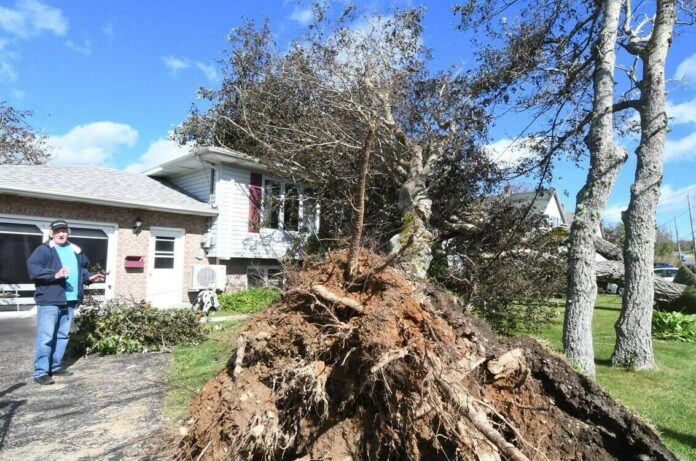
A Helpful Guide To Hurricane Preparedness – In Conclusion
Hurricanes can be destructive and damaging but they can also be a time to come together and show resilience. Hurricane preparedness is the best way to protect your home and family.
Knowing the weather conditions, stocking up on supplies, building an emergency kit, turning off utilities, and taking other measures as advised by local authorities can help when hurricanes strike. Also, consider investing in insurance to cover damage from these natural disasters since it can reduce costs if you suffer storm-related losses.
For small businesses especially, getting the right coverage for hurricane preparedness is essential for mitigating financial loss. We hope this guide helps those on the Gulf Coast stay safe during the upcoming season.

